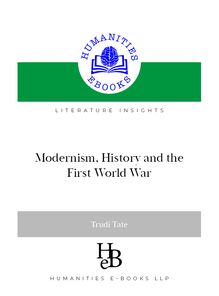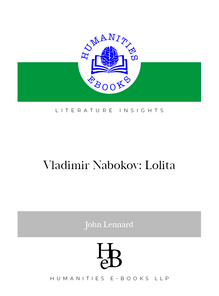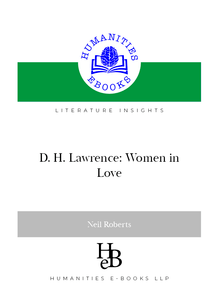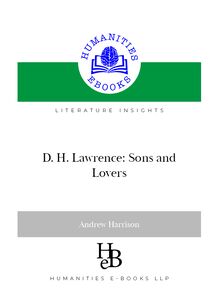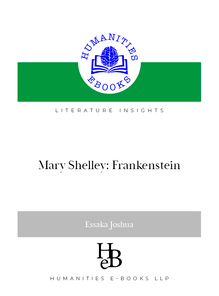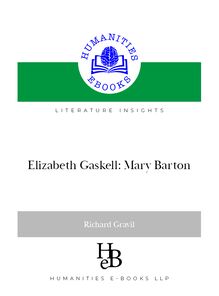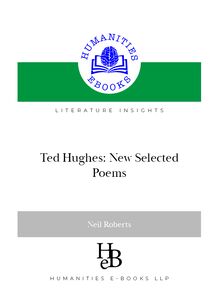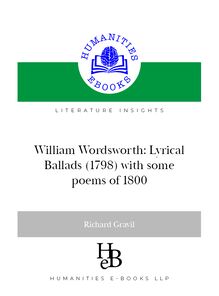-
 Univers
Univers
-
 Ebooks
Ebooks
-
 Livres audio
Livres audio
-
 Presse
Presse
-
 Podcasts
Podcasts
-
 BD
BD
-
 Documents
Documents
-
- Cours
- Révisions
- Ressources pédagogiques
- Sciences de l’éducation
- Manuels scolaires
- Langues
- Travaux de classe
- Annales de BEP
- Etudes supérieures
- Maternelle et primaire
- Fiches de lecture
- Orientation scolaire
- Méthodologie
- Corrigés de devoir
- Annales d’examens et concours
- Annales du bac
- Annales du brevet
- Rapports de stage
La lecture à portée de main
107 pages
English
Découvre YouScribe en t'inscrivant gratuitement
Je m'inscrisDécouvre YouScribe en t'inscrivant gratuitement
Je m'inscris
Obtenez un accès à la bibliothèque pour le consulter en ligne
En savoir plus
En savoir plus
107 pages
English
Obtenez un accès à la bibliothèque pour le consulter en ligne
En savoir plus
En savoir plus

Description
5HDGLQJ :LOOLDP )DXONQHU *R 'RZQ 0RVHV %LJ :RRGV -RKQ /HQQDUG +(%ƁHumanities-Ebooks Readingt 7KLV ERRN LV GHVLJQHG WR EH UHDG LQ VLQJOH SDJH YLHZ XVLQJ WKH µ¿W SDJH¶ FRPPDQG *7R QDYLJDWH WKURXJK WKH FRQWHQWV XVH WKH K\SHUOLQNHG µ%RRN PDUNV¶ DW WKH OHIW RI WKH VFUHHQ *7R VHDUFK FOLFN WKH PDJQLI\LQJ JODVV V\PERO DQG VHOHFW µVKRZ DOO UHVXOWV¶ *)RU HDVH RI UHDGLQJ XVH &75/ /! WR HQODUJH WKH SDJH WR IXOO VFUHHQ DQG UHWXUQ WR QRUPDO YLHZ XVLQJ (VF !
Sujets
Informations
| Publié par | Humanities eBooks |
| Date de parution | 11 janvier 2021 |
| Nombre de lectures | 0 |
| EAN13 | 9781847601988 |
| Langue | English |
| Poids de l'ouvrage | 1 Mo |
Informations légales : prix de location à la page 0,0250€. Cette information est donnée uniquement à titre indicatif conformément à la législation en vigueur.
Extrait
Reading William Faulkner Go Down, Moses & Big Woods
John Lennard HEB☼Humanities-Ebooks
Readingt
*This book is designed to be read in single page view, using the ‘ît page’ command. *To navigate through the contents use the hyperlinked ‘Book-marks’ at the left of the screen. *To search, click the magnifying glass symbol and select ‘show all results’. *For ease of reading, use <CTRL+L> to enlarge the page to full screen, and return to normal view using < Esc >. *Hyperlinks (if any) appear in Blue Underlined Text.
Permissions
Your purchase of this ebook licenses you to read this work on-screen. No part of this publication may be otherwise reproduced or transmitted or distributed without the prior written permission of both the copyright owner and the publisher. You may print one copy of the book for your own use but copy and paste functions are disabled. Making or distributing copies of this book would constitute copyright infringement and would be liable to prosecution. Thank you for respecting the rights of the author.
Literature Insights General Editor: Charles Moseley
Reading William Faulkner
Go Down, Moses & Big Woods
John Lennard
HEB☼Humanities-Ebooks
Copyright
© John Lennard, 2012
The Author has asserted his right to be identiîed as the author of this Work in accordance with the Copyright, Designs and Patents Act 1988.
First published byHumanities-Ebooks, LLP, Tirril Hall, Tirril, Penrith CA10 2JE
ISBN 978-1-84760-198-8 Pdf ISBN 978-1-84760-199-5 Kindle
Contents
Preface 1. William Faulkner, 1897–1962 1.1 The weight of inheritance 1.2 Youth and war, 1897–1927 1.3 Authorship and Hollywood, 1927–50 1.4 The Nobel Prize and after, 1950–62 2. Yoknapatawpha County 2.1. Geography, history, and real-world reference 2.2. Sartorises, Benbows, Compsons, Sutpens, and McCaslins 2.3. Snopeses 2.4. ‘Whites, 6298; Negroes, 9313’ 3. Faulkner’s ‘difîcult style’ 3.1. Prolixity, repetition, and hyperextension 3.2. Missing and unexpected punctuation 3.3. Orality, dialects, and intersecting stories 3.4. The complex canon 4.Go Down, Moses(1942) 4.1. ‘Was’ 4.2. ‘The Fire and the Hearth’ 4.3. ‘Pantaloon in Black’ 4.4. ‘The Old People’ 4.5. ‘The Bear’ 4.6. ‘Delta Autumn’ 4.7. ‘Go Down, Moses’
6 Reading William Faulkner
5.Big Woods(1955) 5.1. ‘The Bear’ and ‘The Old People’ recontextualised 5.2. ‘A Bear Hunt’ 5.3. ‘Race at Morning’ 5.4. The prologue, interchapters, and epilogue 6. Bibliography 6.1. Prose Works by Faulkner 6.2. Selected criticism of Faulkner 6.3. Websites
Preface
Go Down, MosesandBig Woods
7
Literature Insights are determinedly short, and in general seek to pro-vide answers (and provoke questions) rather than assuming know-ledge. Typically they deal only briey with an author’s life and for most of their length concentrate on a single book—but with Faulkner that approach creates a number of problems, and this Insight adopts a rather different strategy. The problem lies partly in the interconnectedness of so many of Faulkner’s works—stories and novels set in the same îctional county, with shared casts, that intersect and entangle—and partly in his characteristic and challenging prose, as much as any of the char-acters an active presence in all his îction. Both features are at the heart of Faulkner’s greatness as an artist, but they also mean that the reader new to Faulkner has an enormous amount of backstory to try to assimilate, despite his style, and that wherever a reader may begin, the same orientation is required. The îrst half of this Insight therefore provides such an orientation, in chapters devoted to Faulkner’s life; to his principal îctional world, Yoknapatawpha County in Mississippi, and the sprawling families he peopled it with; and to that challenging prose style. As with Joyce, it is Faulkner’s prose that is primarily responsible for his reputa-tion as a ‘difîcult’ writer to study, and no scholarly explanation or critical guide can make it any more grammatical or conventionally punctuated than it is. Faulkner was a full-blown, major Modernist who pushed the boundaries of syntax and form, so his style must be acknowledged, in all its glory and wildness. But readers înding him at îrst hard going (as many do) should be neither alarmed nor dis-heartened, for once one understands in overview what Faulkner was about there is much method in his seeming madness. In the second half, chapters 4–5 turn directly toGo Down, MosesandBig Woods, dealing with the component stories of each in detail. Experienced readers of Faulkner should proceed as they will; the inexperienced are strongly recommended to read in chapter order, building up the framework that will enable them to appreciate the place each of his îctions has in a massively greater whole.
8
Reading William Faulkner
Given the need for so much îctional and critical background, I have presumed that readers are familiar with some basic historical facts, of chattel slavery in the American South, and of the Civil War of 1861–5 with the ‘Jim Crow’ politics that followed it; and further presumed, in chapters 4–5, that readers have already readGo Down, MosesandBig Woods—partly because only limited quotation is pos-sible (both remain in copyright until 1 January 2033), and partly because even very full quotation cannot well convey the experience of reading Faulkner’s extraordinary prose. All references to Faulkner’s novels are to the îve-volume Library of America edition.
Go Down, MosesandBig Woods
William Faulkner Photographed in December 1954 by Carl van Vechten
9
1. William Faulkner, 1897–1962
The place of biography in criticism is a mineîeld of potential errors, and nowhere more so than in Faulkner studies. As Faulkner was a Southerner who wrote of the South, a man who wrote of masculin-ity, a farmer and hunter who wrote of farmers hunting, a pilot who wrote of ying, and an alcoholic who wrote of drinking, tempta-tions to read Faulkner’s life into his îctions are rife—and to deny its relevance would be foolish. But at the same time it is fatally easy, in exploring îctions biographically, to become reductive, ignoring complications—the transformations to which Faulkner subjectedallhis material, and his fertile profundity of imagination. Both know-ledge of ‘the facts’ and subtler considerations of the particular history through which Faulkner lived are illuminating, and this chapter pro-vides them—but readers are also warned, loudly, that for everything in his îctions that seemingly corresponds to a biographical reality, at least two other things don’t. It is sometimes taken to be self-evident that ‘writers write best about what they know’, implying that autobiographically sourced îctions are intrinsically preferable. But what a writer knows is not limited to personal experience—which includes reading, fantasizing, lying— and the shaping of stories (including biographies) isalwaysin part the province of imagination. Just how far from sense biographical criticism can stray has been superbly demonstrated by James Shapiro inContested Will: Who Wrote Shakespeare?and it should (2010), always be îercely remembered thatOthellois not an interesting play because Shakespeare was black, nor because he murdered his wife, nor even because he wanted to murder his wife, but because in it heimagined certain personalities and passions, ordering his imaginings into a drama that was compelling at the time and has remained so long after the world he lived in and wrote for passed into history.
-
 Univers
Univers
-
 Ebooks
Ebooks
-
 Livres audio
Livres audio
-
 Presse
Presse
-
 Podcasts
Podcasts
-
 BD
BD
-
 Documents
Documents
-
Jeunesse
-
Littérature
-
Ressources professionnelles
-
Santé et bien-être
-
Savoirs
-
Education
-
Loisirs et hobbies
-
Art, musique et cinéma
-
Actualité et débat de société
-
Jeunesse
-
Littérature
-
Ressources professionnelles
-
Santé et bien-être
-
Savoirs
-
Education
-
Loisirs et hobbies
-
Art, musique et cinéma
-
Actualité et débat de société
-
Actualités
-
Lifestyle
-
Presse jeunesse
-
Presse professionnelle
-
Pratique
-
Presse sportive
-
Presse internationale
-
Culture & Médias
-
Action et Aventures
-
Science-fiction et Fantasy
-
Société
-
Jeunesse
-
Littérature
-
Ressources professionnelles
-
Santé et bien-être
-
Savoirs
-
Education
-
Loisirs et hobbies
-
Art, musique et cinéma
-
Actualité et débat de société
- Cours
- Révisions
- Ressources pédagogiques
- Sciences de l’éducation
- Manuels scolaires
- Langues
- Travaux de classe
- Annales de BEP
- Etudes supérieures
- Maternelle et primaire
- Fiches de lecture
- Orientation scolaire
- Méthodologie
- Corrigés de devoir
- Annales d’examens et concours
- Annales du bac
- Annales du brevet
- Rapports de stage
Signaler un problème
YouScribe
Le catalogue
Le service
© 2010-2024 YouScribe
